Analysis + Opinion | 2023
 |
Analysis + OpinionDecember 26, 2023Billionaire-built cities would be better than nothingEdward L Glaeser and Carlo RattiThe New York TimesThe Bay Area needs a lot more housing, and we may need privately built cities to get there. |
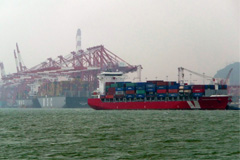 |
Analysis + OpinionDecember 17, 2023America needs a single integrated operational plan for economic conflict with ChinaGeorge J Gilboy and Eric Heginbotham LawfareLessons from a recent wargame for managing a crisis over Taiwan. |
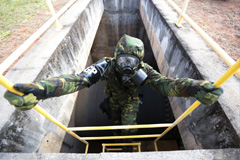 |
Analysis + OpinionDecember 15, 2023Why the world should still worry about dirty bombsWilliam C Potter, Sarah Bidgood & Hanna NotteForeign AffairsVisions of dirty bombs and radiological terrorism obscured the fact that the threat from radiological weapons was not limited to terrorist groups. |
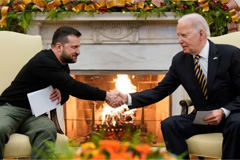 |
Analysis + OpinionDecember 13, 2023America shouldn’t insist on a strategic defeat of RussiaMichael O’Hanlon and Caitlin TalmadgeThe HillMost Americans believe Ukraine has the moral high ground — but that is different from believing Ukraine will get everything it wants at the end of this fight. |
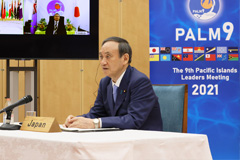 |
Analysis + OpinionNovember 30, 2023PALM10: Japan’s chance to engage with Pacific island countriesMina Pollman, PhDThe DiplomatAs China attempts to increase its influence over the PICs, Japan must marshal a strategic response that connects these states to its broader objectives in the Indo-Pacific. |
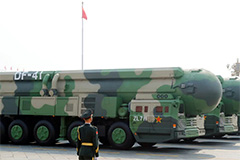 |
Analysis + OpinionNovember 10, 2023China’s misunderstood nuclear expansionM Taylor Fravel, Henrik Stålhane Hiim, and Magnus Langset TrøanForeign AffairsMany eyes are on China’s efforts to accelerate the expansion of its nuclear weapons. Instead of speculating, we can look to China’s own strategists: “Their writings and analysis since 2015 suggest that China’s nuclear expansion is less a shift in Chinese intentions than a response to what Beijing perceives as threatening changes in US nuclear strategy, reflecting an acute security dilemma.” Anxiety is growing among both countries' defenses. |
 |
Analysis + OpinionOctober 20, 2023How should we think about a mass exodus of Palestinians from Gaza?Elizabeth N Saunders and Kelly M GreenhillGood AuthorityMass migration is a common and tragic feature of war. Many people think of it as an unintended consequence of conflict, as people flee for their lives, from guns, tanks, and artillery on the ground and from bombs and missile strikes from the air. This conventional wisdom is correct, but incomplete. |
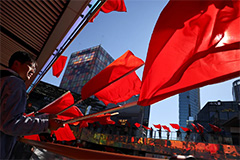 |
Analysis + OpinionSeptember 25, 2023China’s economic slowdown was inevitableYasheng HuangForeign AffairsStatism has not contributed to China's economic success in recent years, but rather the reduction of it. President Xi Jinping's efforts to increase statism have discouraged capitalists from investing in the country's economy, instead turning to other countries. Additionally, the focus on building infrastructure rather than strong health and education programs have damaged the strength of country's economy. Yusheng Huang states that the Chinese government must make more pragmatic economic decisions to end this downturn. |
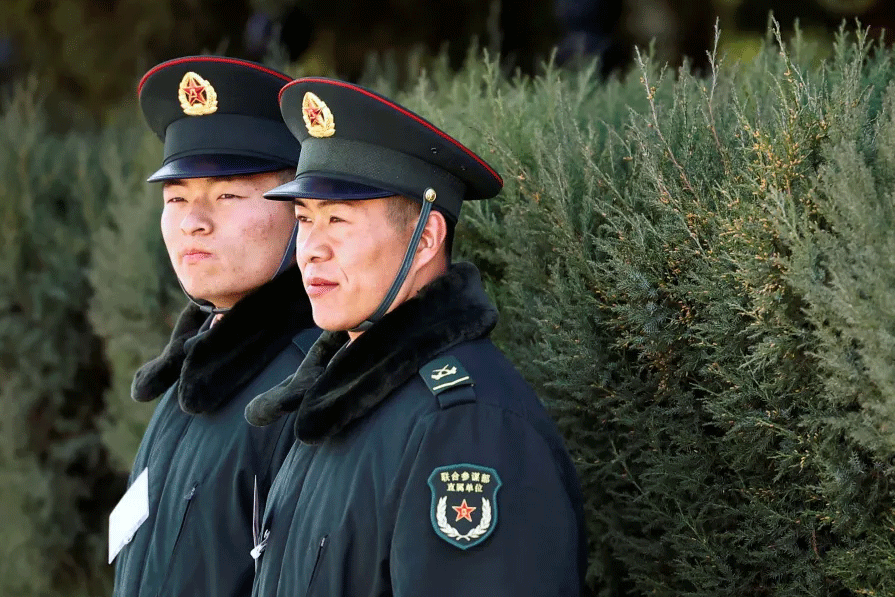 |
Analysis + OpinionSeptember 15, 2023The myth of Chinese diversionary warM Taylor FravelForeign AffairsIf China’s economic woes get worse, its leaders will probably become more sensitive to perceived external challenges, especially on issues such as Taiwan. Increased pressure on China could easily backfire and motivate Beijing to become more aggressive in order to demonstrate its resolve to other states despite its internal difficulties, writes Taylor Fravel in Foreign Affairs. |
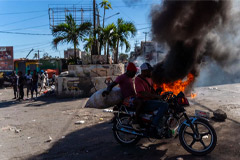 |
Analysis + OpinionSeptember 14, 2023The real intervention Haiti needsMalick W GhachemForeign PolicyHaitians are not alone in their financial predicament. But Haiti has been the canary in the coal mine of the international financial order. The dismal state of its currency and economy prefigured the fate of so many post-colonial nations, from Venezuela to Tunisia. Malick Ghachem, professor of history and a CIS research affiliate, explains. |
 |
Analysis + OpinionAugust 3, 2023Ukraine has a breakthrough problemBarry R PosenForeign PolicyMilitary history suggests Ukraine’s current campaign is far more daunting than the public understands. |
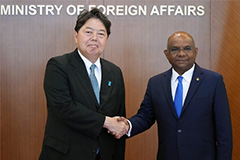 |
Analysis + OpinionAugust 2, 2023With visits to Sri Lanka, Maldives, Japan seeks to shore up Indian Ocean presenceMina PollmannThe DiplomatJapanese Foreign Minister Hayashi Yoshimasa visited the Indian Ocean island states in his latest foreign tour. |
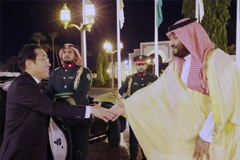 |
Analysis + OpinionJuly 21, 2023Kishida’s trip to Middle East focuses on energy, defense cooperationMina PollmannThe DiplomatThere are ironies involved in both, given that fossil fuels ties Japan and the region together more than shared liberal values. |
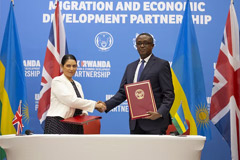 |
Analysis + OpinionJuly 20, 2023Rwanda plan is in legal limbo, but history shows such migration deals are unlikely to disappearFiona B Adamson and Kelly M GreenhillThe ConversationMigration “deals”, as historical analysis shows, are almost never just about migration. Rather, they are more often quid pro quo arrangements linked to other domestic and foreign policy goals. |
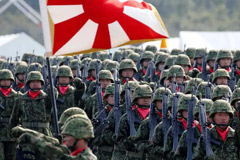 |
Analysis + OpinionJuly 13, 2023Pushing on an open door: Japan’s evolutionary security postureEric Heginbotham, Samuel Leiter & Richard J SamuelsThe Washington QuarterlyJapan’s responses to changing international circumstances reflect longstanding political and bureaucratic desires as much as objectively framed requirements. |
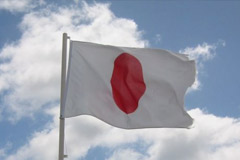 |
Analysis + OpinionJuly 11, 2023Japan takes another step toward expanding defense exportsMina PollmannThe DiplomatThe LDP-Komeito coalition is working to overcome internal differences on loosening the existing restrictions. |
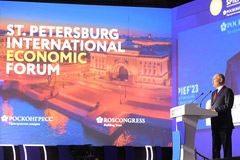 |
Analysis + OpinionJune 18, 2023Can you sanctions-proof a government?Caileigh GlennLawfareSanctions are an important US and allied policy instrument, but one that often fails to achieve the most ambitious policy objectives. Using Russia as an example, Grand Strategy, Security, and Statecraft Fellow Caileigh Glenn assesses the different ways that targets of sanctions can push back and examines the limits of sanctions and how they might be made more effective. |
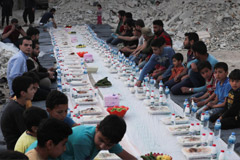 |
Analysis + OpinionJune 9, 2023HR 3202: Analyzing legislative efforts to block Arab engagement with SyriaSteven Simon and Joshua LandisThe Quincy Institute for Responsible StatecraftOpposition to HR 3202 does not imply support for US normalization with Assad, only a recognition that standing in the way of our regional partners’ diplomatic and economic engagement would be counterproductive both to US interests and to the welfare of the Syrian people. |
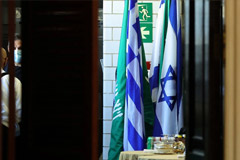 |
Analysis + OpinionJune 5, 2023Is Saudi-Israeli normalization worth it?Aaron David Miller and Steven SimonForeign PolicyIt would be a dramatic accomplishment, but not nearly as transformational as many may think. |
 |
Analysis + OpinionMay 23, 2023Did the unipolar moment ever end?Foreign AffairsIs the global distribution of power today is closer to being unipolar than it is to being bipolar or multipolar? Experts weigh in. |
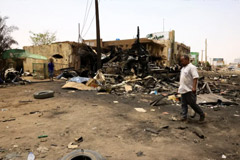 |
Analysis + OpinionMay 1, 2023Sudan’s generals are dragging the country toward disasterMai Hassan and Ahmed KodoudaForeign AffairsOnly civilian leaders can forge a path to piece. |
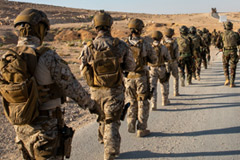 |
Analysis + OpinionApril 23, 2023Why security assistance often failsRachel Tecott MetzLawfareAround the world, the United States relies heavily on security assistance to gain influence and make its allies more formidable. When actual war breaks out, however, many long-time recipients of such assistance fight poorly or otherwise do not seem to have heeded the lessons that U.S. trainers tried to impart. |
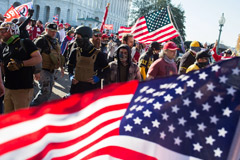 |
Analysis + OpinionApril 21, 2023The threat of civil breakdown is realSteven Simon and Jonathan StevensonPoliticoNational security officials are still not prepared for a far-right revolt. |
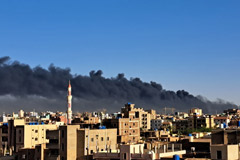 |
Analysis + OpinionApril 20, 2023The failed “coup-proofing” behind the recent violence in SudanIsaac ChotinerThe New YorkerIsaac Chotiner interviews Mai Hassan, Faculty Director of MIT Africa and Associate Professor of Political Science, about the recent violence in Sudan. |
 |
Analysis + OpinionApril 10, 2023The cost of 'normalcy': Updating Japan's national securityRichard J SamuelsYale MacMillan Center Council on East Asian StudiesRichard J Samuels, Ford International Professor of Political Science and Director of the Center for International Studies, gives the 23rd Annual John W Hall Lecture in Japanese Studies. |
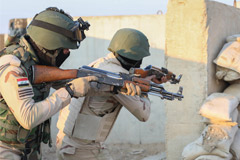 |
Analysis + OpinionMarch 16, 2023You can go home again: A proposal for phased military withdrawal from Iraq and normalizing US–Iraq relationsSteven Simon and Adam WeinsteinQuincy Institute for Responsible StatecraftUS interests in Iraq are derived from an interest in regional stability and impel the continuation of an “advise, assist, and enable” mission in the near term. There is no need, however, to maintain a long–term military presence in the country. |
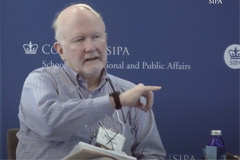 |
Analysis + OpinionFebruary 24, 2023Nuclear war theory: Continuity and changeStephen Van EveraColumbia SIPAFord International Professor of Political Science Stephen Van Evera participated in A Conference on Today’s Competitive Geopolitical Landscape – in honor of Robert Jervis, hosted by the School of International and Public Affairs at Columbia University. He spoke on a panel about Robert Jervis' work on nuclear war theory. |
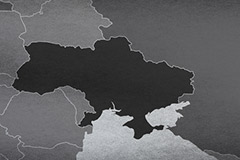 |
Analysis + OpinionFebruary 13, 2023Lessons from Russia's invasion of UkraineBarry Posen and Stephen Van EveraDefense PrioritiesMIT Security Studies Program Professors Barry Posen and Stephen Van Evera, along with other top experts, share their insights on key takeaways from the first year of the war in Ukraine. |
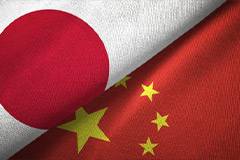 |
Analysis + OpinionFebruary 7, 2023Japan, China hold Foreign Minister call days after NATO chief’s visitMina PollmannThe DiplomatTokyo continues to try to keep relations with Beijing stable even as it deepens military cooperation with NATO and other partners. |
 |
Analysis + OpinionFebruary 3, 2023A better way to protect free speech on campusMalick W GhachemThe Chronicle of Higher EducationGrand statements of principle ignore classroom realities. |
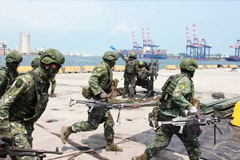 |
Analysis + OpinionJanuary 31, 2023Why we believe the US still has the upper hand in a war over TaiwanEric HeginbothamNewsweekRecently conducted simulations of a Chinese invasion of Taiwan...show that although such a war would be costly to all sides, China would lose—so long as the United States continues to invest in maintaining deterrence and chooses to intervene directly and vigorously. |
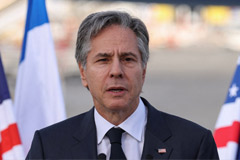 |
Analysis + OpinionJanuary 30, 2023As Blinken visits Israel amid violence, US confirms drone attacks on IranSteven SimonResponsible StatecraftWhile affirming Washington’s strategy against Tehran, Blinken will have to convince Netanyahu against flaming an Israeli-Palestinian war. |
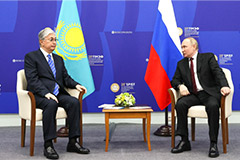 |
Analysis + OpinionJanuary 29, 2023Russia in the Caucasus and Central Asia after the invasion of UkraineCarol R SaivetzLawfareRussia’s invasion of Ukraine has reshaped the politics of much of the former Soviet periphery. |
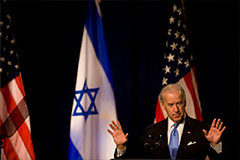 |
Analysis + OpinionJanuary 13, 2023Biden is about to have his hands full in the Middle EastAaron David Miller and Steven SimonForeign PolicyIran and Israel may set Washington’s agenda for the next two years. |
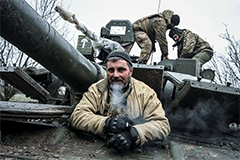 |
Analysis + OpinionJanuary 4, 2023Russia's reboundBarry R PosenForeign AffairsHow Moscow has partially recovered from its military setbacks. |


